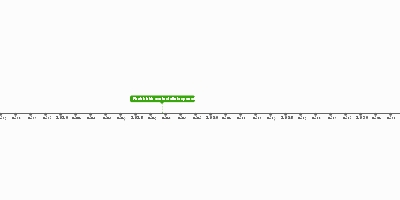19 maio 2021 ano - Texas Heartbeat Act
Descrição:
The Texas Heartbeat Act is an act of the Texas Legislature that bans abortion after the detection of an unborn child's heartbeat, which normally occurs after about six weeks of pregnancy. It was introduced as Senate Bill 8 (SB 8) and House Bill 1515 (HB 1515) on March 11, 2021, and was signed into law by Governor Greg Abbott on May 19, 2021. The law took effect on September 1, 2021, after the Supreme Court denied a request for emergency relief from Texas abortion providers.[1] It is the first time a state has successfully imposed a six-week abortion ban since Roe v. Wade, and the first abortion restriction to rely on enforcement by private individuals through civil lawsuits, rather than having state officials enforce the law with criminal or civil penalties. The act authorizes members of the public to sue anyone who performs or facilitates an illegal abortion for a minimum of $10,000 in statutory damages per abortion, plus court costs and attorneys’ fees.[2][3][4]The Texas Heartbeat Act has been subjected to numerous pre-enforcement lawsuits in state and federal court, but the statute has thus far withstood these court challenges and remains in effect. Lawsuits challenging the constitutionality of the Act have been filed by abortion providers and advocates,[5] as well as the United States Department of Justice,[6][7] but none of these lawsuits have been able to restore access to post-heartbeat abortions in Texas. The law has been difficult to challenge in court because of its novel enforcement mechanism, which bars state officials from enforcing the law and instead authorizes private individuals to sue anyone who performs or assists a post-heartbeat abortion.[8][9] Because the law is enforced by private citizens rather than government officials, abortion providers have been unable to obtain relief that will stop private lawsuits from being initiated against them.[10] This has effectively produced an end-run around Roe v. Wade, which established a federal constitutional right to abortion, because the threat of private civil-enforcement lawsuits has forced abortion providers to comply with SB 8 despite its incompatibility with the Supreme Court's abortion pronouncements.[11][12]
Even when courts have declared SB 8 unconstitutional, abortion providers have remained in compliance with the Act because it purports to subject individuals to private civil-enforcement lawsuits if they perform or assist a post-heartbeat abortion while an injunction that blocks the law's enforcement is in effect, if that injunction is later vacated or reversed on appeal.[13][14][15] On October 6, 2021, Federal District Judge Robert L. Pitman issued a preliminary injunction that blocked the state of Texas from enforcing the law,[16] which remained in effect until the U.S. Court of Appeals for the Fifth Circuit issued a stay of Pitman's order two days later.[17] Yet Pitman's order was unable to fully restore access to post-heartbeat abortions in Texas, even during the 48-hour window in which it was in effect, because abortion providers were unwilling to risk the civil liability that would be imposed if Pitman's injunction were stayed or overturned by a higher court.[14][18] The U.S. Supreme Court declined to overturn the Fifth Circuit's stay of Pitman's ruling,[19][20] so any post-heartbeat abortions performed in reliance on Pitman's injunction are subject to private civil-enforcement lawsuits under the terms of SB 8.[13] This has made it difficult for abortion providers to resume services even when they obtain relief from a lower court that pronounces the statute unconstitutional, and it has further frustrated efforts to thwart the statute's enforcement in court.
In December 2021, the Supreme Court dismissed a writ of certiorari in the federal government's lawsuit over SB 8,[20] as well as claims that Texas abortion providers had brought against a state-court judge, a court clerk, the state's attorney general, and a private citizen.[10] The Court did, however, allow the abortion providers' claims against state licensing officials to proceed beyond the motion-to-dismiss stage, and remanded the case back to the Fifth Circuit.[10] On remand to the 5th Circuit, a question of Texas state law concerning the state licensing officials' ability to enforce the law was certified to the Supreme Court of Texas, leaving the law in effect in the meanwhile.[21] Abortion providers and funders are also challenging the constitutionality of the act in state court.[22] On December 9, 2021, a state district judge ruled that portions of the statute's enforcement mechanism violate the Texas Constitution, but he did not enjoin the law's enforcement.[15] That ruling is currently on appeal.
https://en.wikipedia.org/wiki/Texas_Heartbeat_Act
Adicionado na linha do tempo:
Data:
19 maio 2021 ano
Agora
~ 4 years and 5 months ago
